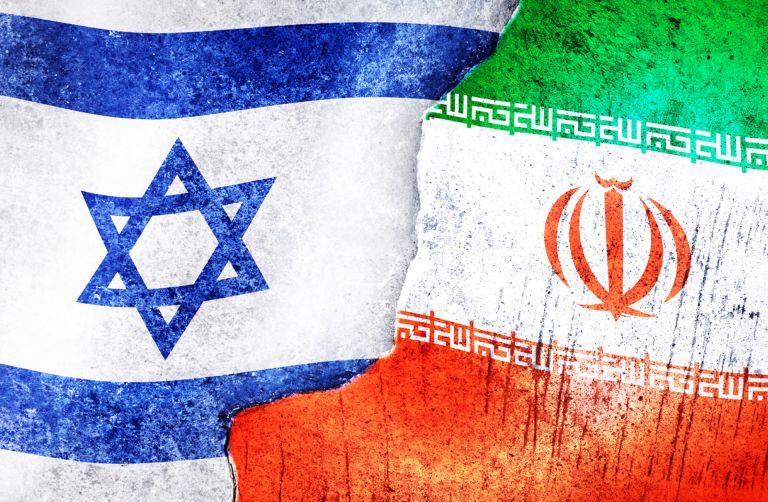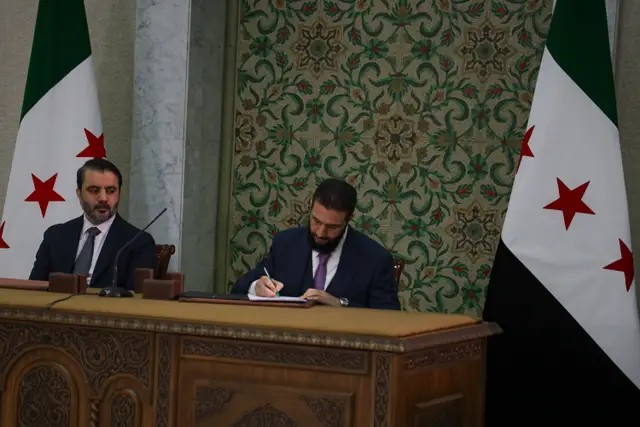Credit: Doam on X for banner images.
In a significant religious development, the International Union of Muslim Scholars (IUMS), led by its President Allamah Prof. Ali Mohieddin Al-Qaradaghi, alongside Prof. Fadl Abdullah Murad, has issued a landmark fatwa declaring armed jihad against the Israeli occupation in Palestine as an individual obligation (Fard Ayn) on every able Muslim worldwide.
The 10-Point Fatwa by IUMS Outlines:
- Armed jihad against the Israeli occupation in Palestine is an obligation (Fard Ayn) on every able Muslim globally.
- Immediate military intervention by Arab and Islamic countries is obligatory.
- Total blockade of Israel by land, sea, and air, including closure of waterways, straits, and airspace within Muslim lands.
- Supplying Palestinian resistance with weapons, finances, political, and legal support is a religious duty.
- Formation of an Islamic military alliance to defend the Ummah is urgently obligatory.
- Normalisation with Israel is strictly forbidden (haram).
- Supplying Israel with oil and gas is prohibited.
- Peace treaties between some Arab states and Israel must be reconsidered.
- Financial jihad (support) for Gaza and the immediate opening of crossings is obligatory.
- Muslim communities in the US are urged to pressure their government to halt Israeli aggression and work towards peace.
This fatwa was endorsed by several senior scholars from across the Muslim world, including:
- Sheikh Mohammed Al-Hassan Al-Dedew
- Sheikh Abdul Hai Yusuf
- Sheikh Ibrahim Abu Muhammad
- Sheikh Khalid Al-Hanafi
- Sheikh Ahmed Kafi
- Dr. Farida Sadek Zouz
- Sheikh Mohammed Gurmaz
- Sheikh Mustafa Dadash
- Sheikh Salem Al-Sheikhi
- Sheikh Masoud Sabri
- Sheikh Wanis Al-Mabrouk
- Sheikh Ajeel Alnashmi
- Sheikh Noureddine Khadimi
- Sheikh Ahmed Hawa
- Sheikh Sultan Al-Hashemi
Rejection and Criticism
The fatwa has sparked sharp criticism, particularly from Egypt’s official religious authority.
Egypt’s Grand Mufti, Nazir Ayyad, labelled the IUMS fatwa as “irresponsible”, arguing that the declaration of jihad is the exclusive right of legitimate state authorities, not independent scholars or organisations.
Ayyad warned that:
“Calling for jihad without considering political, military, and economic realities is against Sharia principles and risks causing greater harm and destruction to the Palestinian people.”
Similar rejection came from Egypt’s leading Salafi cleric, Yasser Burhami, who described the fatwa as unrealistic and contradictory to Egypt’s peace treaty with Israel.
Pakistan’s Historic Fatwa
In a parallel development, Pakistan has issued its own powerful fatwa — but with a key distinction. Pakistan’s Grand Mufti, Mufti Muneeb ur Rahman, together with senior scholars like Mufti Taqi Usmani and scholars from all four major Sunni schools of thought, declared jihad against Israel to be Fard — but specifically upon Muslim states (governments), not individuals.
Speaking at the National Palestine Conference in Islamabad, Mufti Taqi Usmani said:
“If Muslim armies are not going to defend Al-Aqsa and Gaza, what is their purpose?”
The fatwa, endorsed nationally, calls for Muslim governments to unite militarily to defend Palestine, labelling it a duty upon Islamic states rather than individual citizens.
Growing Global Support
The Indonesian Council of Ulema (MUI) has also expressed its support for the IUMS fatwa, aligning it with their own previous fatwa declaring the obligation of Muslims to defend Palestine against occupation.
MUI Chairman Sudarnoto Abdul Hakim confirmed:
“This is in line with the decision of the Indonesian Fatwa Council, stressing the obligation of Muslims to defend Palestine by all means available.”
This latest wave of fatwas calling for jihad in defence of Palestine has sent shockwaves across the Muslim world — exposing deep divides between religious scholars and state-backed clerics over the means and legitimacy of armed resistance.
While independent scholars push for immediate and direct military action, official religious bodies like Egypt’s Dar al-Ifta advocate for state-controlled responses rooted in political strategy and realism.
As Gaza continues to suffer unprecedented destruction, these debates raise pressing questions about the role of religious authority, state power, and the future direction of the Muslim world’s response to the Palestinian crisis.








Leave a Reply